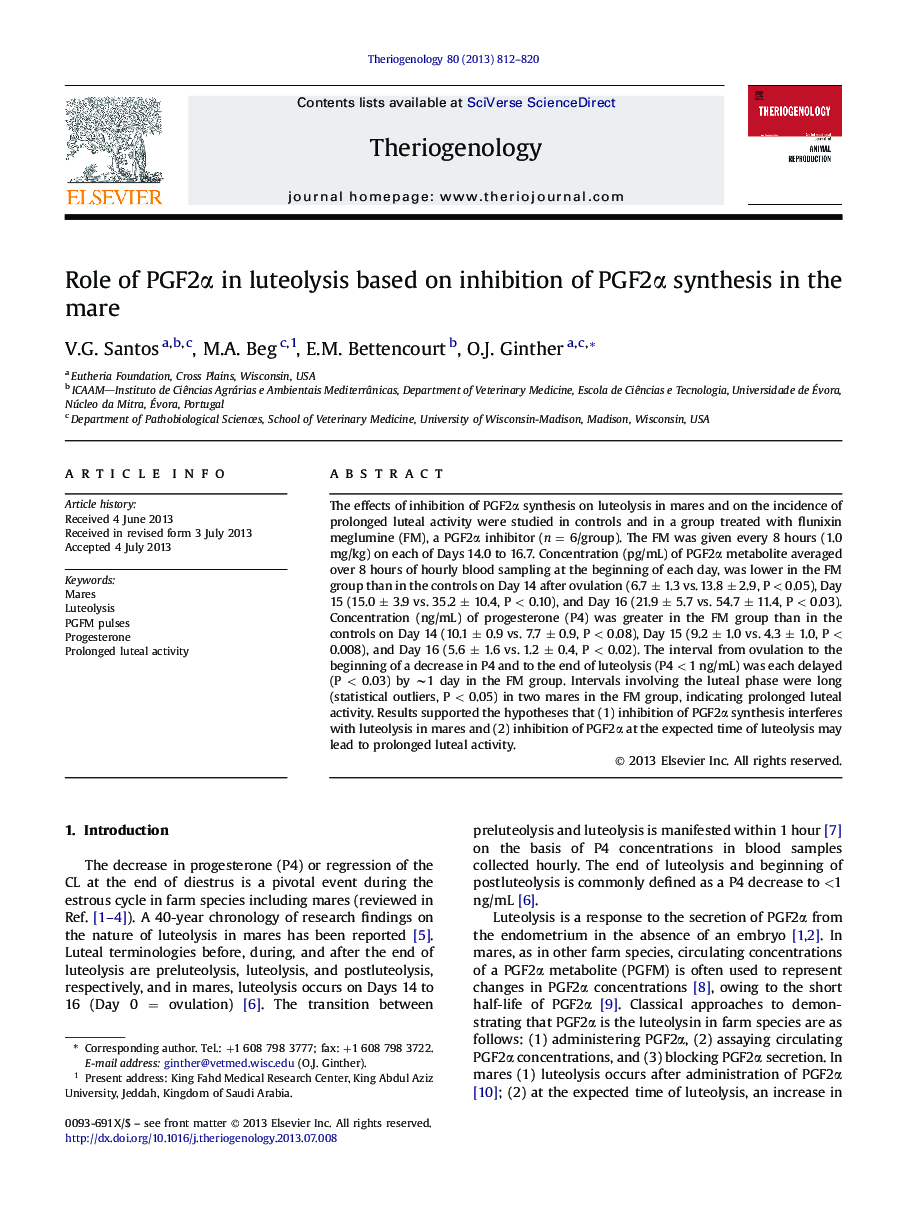| Article ID | Journal | Published Year | Pages | File Type |
|---|---|---|---|---|
| 10892073 | Theriogenology | 2013 | 9 Pages |
Abstract
The effects of inhibition of PGF2α synthesis on luteolysis in mares and on the incidence of prolonged luteal activity were studied in controls and in a group treated with flunixin meglumine (FM), a PGF2α inhibitor (n = 6/group). The FM was given every 8 hours (1.0 mg/kg) on each of Days 14.0 to 16.7. Concentration (pg/mL) of PGF2α metabolite averaged over 8 hours of hourly blood sampling at the beginning of each day, was lower in the FM group than in the controls on Day 14 after ovulation (6.7 ± 1.3 vs. 13.8 ± 2.9, P < 0.05), Day 15 (15.0 ± 3.9 vs. 35.2 ± 10.4, P < 0.10), and Day 16 (21.9 ± 5.7 vs. 54.7 ± 11.4, P < 0.03). Concentration (ng/mL) of progesterone (P4) was greater in the FM group than in the controls on Day 14 (10.1 ± 0.9 vs. 7.7 ± 0.9, P < 0.08), Day 15 (9.2 ± 1.0 vs. 4.3 ± 1.0, P < 0.008), and Day 16 (5.6 ± 1.6 vs. 1.2 ± 0.4, P < 0.02). The interval from ovulation to the beginning of a decrease in P4 and to the end of luteolysis (P4 < 1 ng/mL) was each delayed (P < 0.03) by â¼1 day in the FM group. Intervals involving the luteal phase were long (statistical outliers, P < 0.05) in two mares in the FM group, indicating prolonged luteal activity. Results supported the hypotheses that (1) inhibition of PGF2α synthesis interferes with luteolysis in mares and (2) inhibition of PGF2α at the expected time of luteolysis may lead to prolonged luteal activity.
Related Topics
Life Sciences
Agricultural and Biological Sciences
Animal Science and Zoology
Authors
V.G. Santos, M.A. Beg, E.M. Bettencourt, O.J. Ginther,
